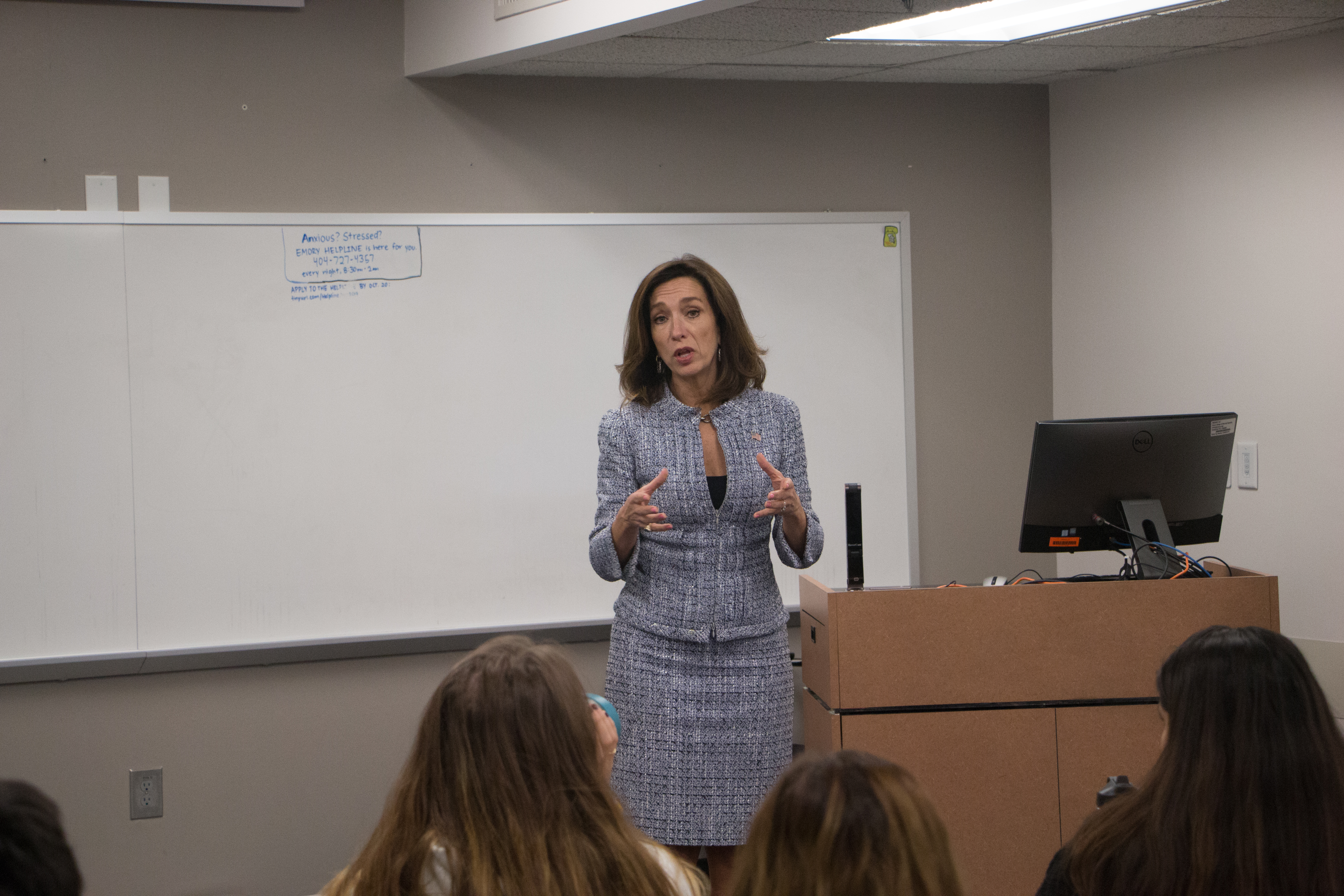People for the Ethical Treatment of Animals (PETA) stated that a U.S. Department of Agriculture (USDA) Animal and Plant Health Inspection Service investigation found that staffers at Emory University’s Whitehead Biomedical Research Building violated the Animal Welfare Act multiple times, according to a Feb. 27 press release. Now, PETA is calling on the National Institutes of Health (NIH) to launch an investigation and cut the University’s funding.
The Jan. 16 USDA inspection report cited Emory for five violations that caused animals “pain or distress,” including improper handling of a gerbil, pig and guinea pigs. The document revealed that a gerbil jumped from its cage and suffered multiple fractures. Additionally, a pig sustained a laceration to its snout during transportation, and guinea pigs were kept in enclosures at 41 and 50 degrees Fahrenheit for seven days. Guinea pigs should typically be housed in warmer temperatures ranging from 60 to 85 degrees Fahrenheit.
In response to these citations, PETA Laboratory Oversight Specialist Amanda Schemkes filed a complaint on Feb. 27 requesting that the NIH investigate Emory’s “possible noncompliance” with the Public Health Service Policy on Humane Care and Use of Laboratory Animals, writing that the NIH should take “swift and decisive action against Emory.”
Schemkes’ complaint states that Emory has failed to consider alternatives for painful or stressful procedures, report an Animal Welfare Act exemption after keeping the guinea pigs in cold temperatures, adequately train staff for the humane care of animals and provide safe enclosures to prevent animal injuries.

Emory University’s Whitehead Biomedical Research Building is comprised of laboratories, lab supports, and offices for the cell biology, human genetics and physiology departments. (Courtesy of Emory University)
PETA Senior Vice President of Laboratory Investigations Kathy Guillermo called Emory staffers’ actions “neglectful” in a Feb. 27 statement.
“Emory should get out of the business of tormenting animals and redirect its resources — more than $485 million in NIH grants last year — toward modern, non-animal research methods that will actually help humans,” Guillermo wrote.
Likewise, PETA Vice President of Laboratory Investigations Cases Alka Chandna told The Emory Wheel that the University should “modernize” its research methodologies and move away from animal testing.
“The animal experimenters are just adding to the amount of violence in the world, the amount of pain in the world, the amount of suffering and misery in the world, without actually addressing the need for cures and treatments for human beings,” Chandna said.
Referencing a list of Emory’s animal welfare violations, Chandna said that the University is among a group of institutions PETA monitors specifically due to the number of infringements.
“We have seen that the national primate research centers, including Emory, consistently, chronically fail to comply with these minimal standards and consequently, we see egregious instances of violation,” Chandna said.
This is not the first time that the Whitehead Biomedical Research Building has caught the USDA’s attention for alleged animal mistreatment. Since 2013, the USDA has reported nine violations at the facility.
PETA has also previously raised concern about Emory’s National Primate Research Center, formerly named Yerkes National Primate Research Center, with the USDA giving the center 28 violations since 2005, including citations in 2017 for failing to provide three monkeys with adequate veterinary care. Emory attempted to remove the citations from federal inspection reports, but the USDA ultimately decided to deny two of the requests in March 2022.
Assistant Vice President of University Communications Laura Diamond wrote in an email to the Wheel that Emory remains committed to reviewing its animal care program to ensure high-quality care for animals involved in research.
“Research with animals is critical to Emory University’s work to prevent and treat disease and to advance care that saves and improves lives,” Diamond wrote. “The University understands its obligation to safeguard the health and well-being of our research animals, self-reports concerns to internal and federal regulatory authorities and acts swiftly to resolve any issues.”
Lauren Yee (25Ox) is a news editor at The Emory Wheel. She is from Hong Kong and is majoring in religion. Outside of the Wheel, Yee serves on the boards of the Phi Gamma Literary Society and the Oxford Ensemble of Shakespearean Artists. In her free time, you can find her playing the saxophone, watching musicals or enjoying an iced oat milk matcha!







